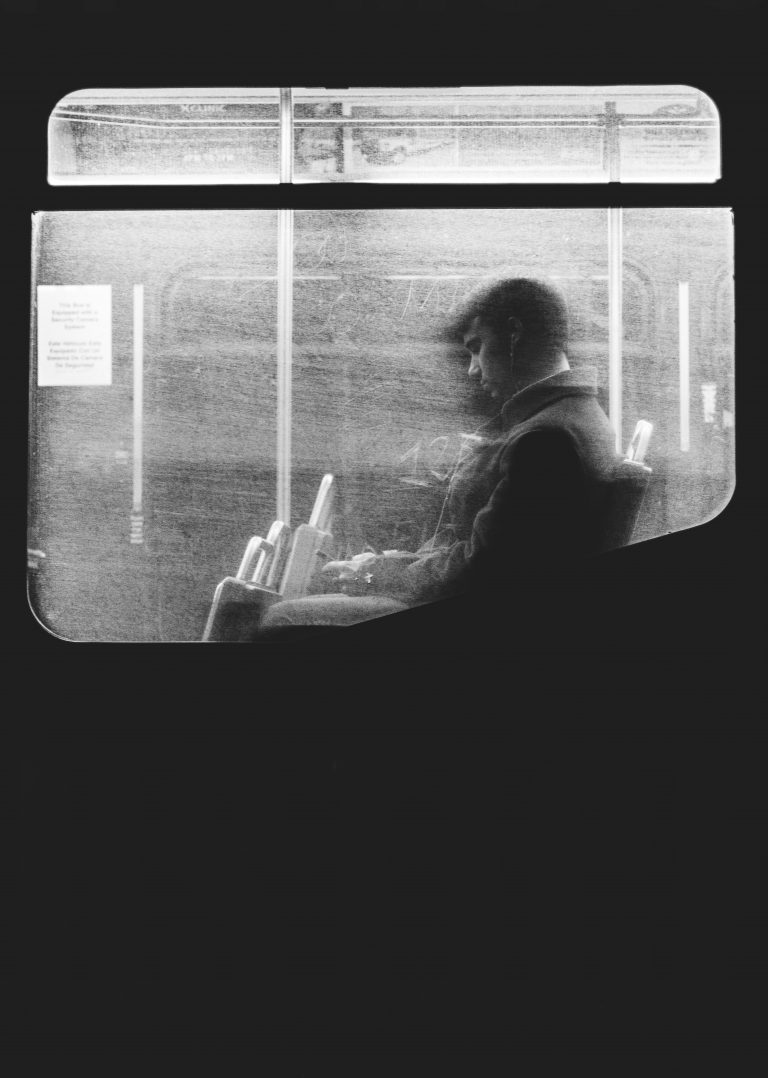
Image by Alex Iby/Unsplash, Public Domain Dedication (CC0).
The Luxury of Being Fascinated
There is a scene in Black Lives Matter co-founder Patrisse Khan-Cullors’ new memoir, When They Call You a Terrorist, that punched me in the gut.
Her brother, Monte, gets into a fender bender while off his anti-psychotic medication. Police, discovering a young man unhinged, shoot him with rubber bullets, tase him, and then charge him with, literally, terrorism. They take him to Twin Towers, the notorious Los Angeles County Jail that would later be exposed as a den of abuse and corruption, where he is kept in solitary confinement for 23 hours a day. They give him Advil.
When his court date finally arrives, Patrisse and her mother show up to support Monte. The bailiff warns them that he is in “alarming” condition — that he’s on a gurney, strapped down, with a spit net over his mouth. Indeed, when he is wheeled in, Patrisse and her mother see that he is in full psychotic break. She writes:
“To one side of me and just in front, three white men who are also in the court, I suppose for their family member or friend, begin to laugh. No one silences them. They look at my brother as though he is a freak show. They look at him as though he is not a human being.
I am gripped with an encompassing sense of shame and humiliation. I don’t want to feel this way but here is all of our family’s pain on full blast before people who hate us. I try to stay centered, to say with my eyes, which are laser-focused on Monte, what the court will not allow me to say with my mouth. I love you Monte. I am coming for you. I won’t let them take you, baby. Just stay with me, Monte. Stay with me.”
Reliving this heart-wrenching, profoundly unjust moment alongside Patrisse helped me land on an important truth about my own consciousness. As a white person who has supported both Black Lives Matter and prison reform, I have had the luxury of relating to these movements in an overwhelmingly intellectual way. I am morally motivated, to be sure, but always from a fairly “heady” place.
I have watched Ava DuVernay’s powerful documentary on the criminal justice system and how it is a direct extension of Jim Crow and even slavery, 13th, and very likely described it as “fascinating.” Which it is. I have forwarded an article about a prison in Finland to friends who are similarly fascinated by this issue. I have even written about prison re-entry programs — the amazing Homeboy Industries and an effort by design firm IDEO to rethink how California prisoners are equipped to re-enter the world, largely informed by prisoners themselves.
And yet, for someone like Patrisse, whose own brother has been abused and humiliated so thoroughly by the criminal justice system, this is not a matter of intellectual intrigue or a design opportunity. This is a matter of human dignity, of life and death, of love and survival.
If I imagine my own brother, who sounds quite similar to Monte in various ways, strapped to a gurney, his mouth covered by a spit net, sanity-saving medications withheld from him, I feel an uncontrollable rage well up in my body. I see myself in that courtroom and I can only imagine jumping out of my seat, clawing at the men laughing nearby or the closest police officer, or really anyone that played any role in my brother’s suffering. I can’t fathom what my mother would feel. As a mother myself, I can’t imagine myself behaving with anything but untamable anger and even violence were someone to do that to one of my children.
And yet, that too, is a luxury. Patrisse and her mother didn’t have the option of expressing their rage. They were beholden to a system with the power to inflict even more suffering on him, and them, were they to express their own humanity in that moment. Monte was traumatized, without a doubt; so was his family. Our criminal justice system does that to people. Not people like me — white, economically privileged — but people like Monte and his family. And after reading Patrisse and her co-author, asha bandele’s exquisite words, I get that on a level that I never have before. I actually feel it in my body. It’s almost intolerable and so necessary.
There is nothing wrong with informing yourself about the various unjust systems that operate in our American midst. But there is something disturbingly shallow about only relating to these systems as problems to be solved. It not only takes the urgency out of the solving, but it further dehumanizes in its own way. It turns a visceral indignity that real people — people as real as me, as my brother — experience into a “case study.” Of course we must understand the origins and contemporary contours of our country’s brokenness in order to fix it. But those of us with some distance must be aware of the profound and very real pain that this brokenness causes and honor it. That pain is not a data point.
When They Call You a Terrorist has changed me. It has planted a seed of knowing that I must seek out ways to be an embodied ally, not just a fascinated one. That I must study the systems I want to change, but also create space for the spiritual practice of getting proximate to the pain that they cause. Not to take on that pain as my own, but to move forward with the gravity of its savage effects on beautiful humans like Monte.
You can read an excerpt of When They Call You a Terrorist, which is available in bookstores starting January 16, 2018, here.


Share your reflection